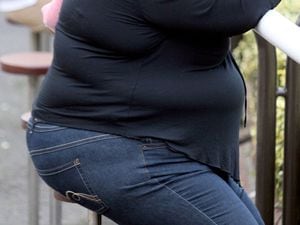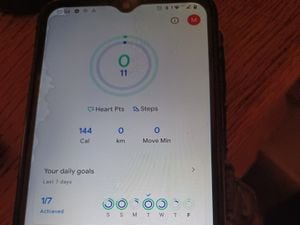Obesity hospital admissions increasing across Black Country and Staffordshire
More people are being admitted to hospital as a result of obesity in the Black Country and Staffordshire, new figures show.

NHS England medical director Professor Stephen Powis said the latest "shocking" figures, which show obesity-related admissions have risen by nearly a fifth nationally, are a growing sign that an obesity crisis is sweeping the nation.
NHS Digital data revealed that in Staffordshire, there were 25,975 hospital admissions where obesity was a primary or secondary factor in the year 2019 to 2020. That was 2,886 in every 100,000 residents – up from the previous year's figure of 2,595. Women accounted for two-thirds of obesity-related hospital cases in Staffordshire that year, the figures reveal.
In Wolverhampton, there were 7,375 hospital admissions in 2019 to 2020 where obesity was a primary or secondary factor. That was 2,943 in every 100,000 residents – up from the previous year's figure of 2,806.
There were 7,370 hospital admissions in Walsall that year. That was 2,710 in everyone 100,000 residents – up from the previous year's figure of 2,291.
The data shows in Dudley there were 6,765 hospital admissions in 2019 to 2020 where obesity was a primary or secondary factor. That was 2,153 in every 100,000 residents – down from the previous year's figures of 2,210.
And in Sandwell, there were 5,585 hospital admissions. That was 1,842 in every 100,000 residents – up from the previous year's figure of 1,465.
In all four Black Country boroughs, women accounted for more than seven in 10 obesity-related hospital cases.
Nationally, there were just over 1 million admissions due to obesity in 2019 to 2020 – up 17 per cent from 2018 to 2019.
There was huge disparity in rates across England, with the most deprived areas worse affected than those with low deprivation levels.
The West Midlands was the second-worst affected of the country's nine regions, with a rate of 2,261 per 100,000 population.
The East Midlands had the highest rate last year, at 2,592 – nearly double that of the South East, which had the lowest rate of 1,382.
NHS Digital said some of the overall rise may be due to better reporting of data.
Professor Powis said the nation's "obesity crisis" is putting hundreds of thousands of people at greater risk of becoming severely ill with Covid, as well as heart attacks, stroke, cancer and other deadly diseases.
"Carrying extra pounds not only puts a strain on your physical health, but also on the health service," he added.
"As lockdown restrictions start to ease, there has never been a better time to take steps to live a healthier lifestyle."
The Government has announced a raft of new measures to help tackle obesity, including a ban on junk food adverts online and calories on menus for meals.
Diabetes UK, which has campaigned for menu calorie labelling as part of its Food Upfront campaign, welcomed the move.
Helen Kirrane, the charity's head of policy, campaigns and mobilisation, said: "Obesity is the single greatest risk factor for type 2 diabetes. There are an estimated 13.6 million people at increased risk of developing the condition in the UK.
"We are glad that the Government has committed to making large takeaway, cafe and restaurant chains in England label the food they sell. This will hopefully lead to improved menus and healthier options.
“We hope it will bring these large businesses more in line with the food retail sector when it comes to giving people clear calorie information for the food they buy."





